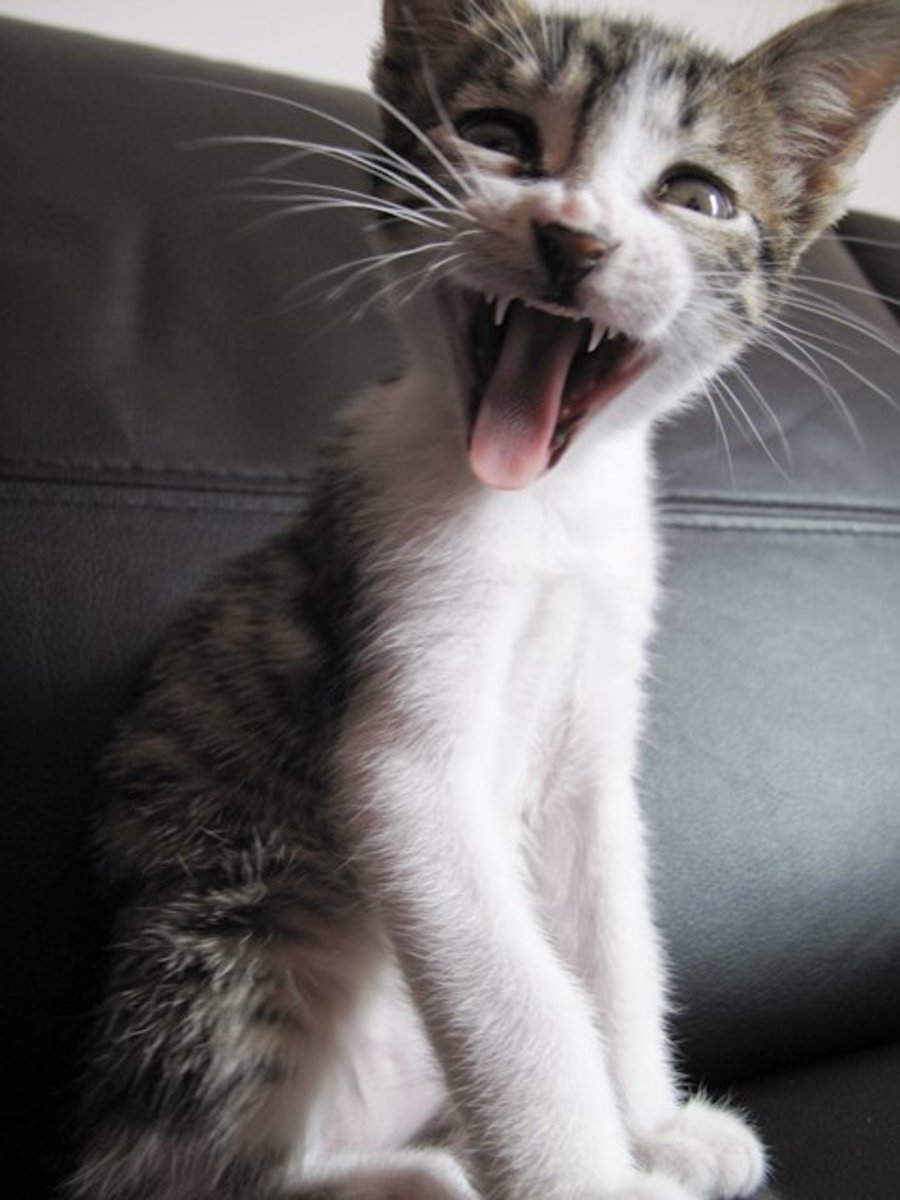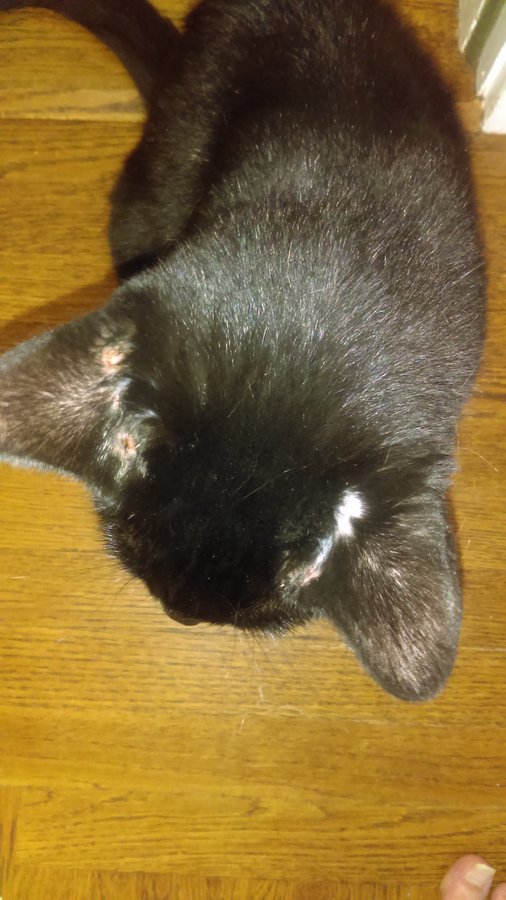Aside from discomfort, sneezing and swelling, this can also limit your cat's hearing or breathing. These signs are sure of irritation in its ear, caused by ear infection by bacteria, yeast, or mites.

Why Is My Cat Scratching Its Ears and Shaking Its Head
Cat’s ears twitching and shaking head.

Cat holding ear down and shaking head. Ear infections cause pain and discomfort and the ear canals are sensitive. I've seen her scratch it a few times or shake her head. 1.3 ears turned back or sideways.
Cats will often shake their head after laying down or doing something active. I can not see any on the inside. Rubbing their ears or face on furniture, the floor, etc.
According to pet education, a middle or inner ear infection is the most common cause of a head tilt. Pieces of plant matter and other small objects can get stuck inside the narrow passages in the ears and nose. Other symptoms of vestibular syndrome may include the following:
Many cats will shake their head and scratch their ears attempting to remove the debris and fluid from the ear canal. If this is not the issue, then it may be related to parasites alone. Ear discharge that may be black, brown or yellow in colour;
Shaking of the head frequently; This is to realign the fluid in their ears which helps them balance. This head tilt occurs in both inner ear and brain stem disorders.
Symptoms of polyps in cats include: Commonly, feline shaking its head is attributed to the following factors: There are a number of small blood vessels within the ear pinna (flap) and if a cat (or dog) shakes its head hard enough, for any reason, they run the risk of bursting.
Its not constant but it is often. These parasites can cause obsessive scratching, as the cat makes a. Painful, hot, red, or swollen ears;
You should then bring the cat to the vet right away so the vet can examine the cat and treat the. I tried to look in it several times and it looks fine to me. To determine if your cat has ear mites, check your cat’s ears for material that looks like coffee grounds.
Side effects of some toxic antibiotics; Head shaking on its own is enough to warrant further investigation, ie. Parasites might cause a cat to scratch.
A cat that is shaking or tilting its head could have a number of possible health issues, such as an infection, a nutritional deficiency, a neurologic disease, or a metabolic disease. Lack of balance (ataxia) uncoordinated movement; Outer ear and/or ear canal redness;
Symptoms of ear problems in cats. Ear infections can target the outer external ear including the ear canal. Tenderness, irritability when you touch the ear;
I'm not sure what to make of. Tilting of head to one side; Im wondering if i need to take him to an expensive 24hr emergency vet or if i can wait until next week.
It will also begin rubbing and scratching at the affected ear with its paws. If your cat is having an ear infection, then you expect it to frequently shake its head. If your cat’s ears are twitching and it shakes its head repeatedly, it may be struggling with parasites or mites.
The cat is trying to shake away the discomfort. Increased production of wax in the ear canals; Scabs and crusting on the ears or the face
Top 10 signs your cat has oral pain Partial or complete hearing loss; Redness or swelling of the ear pinna/ flap
So, if you ever see such a sign, take your pet to the vet for further treatment. If your cat is persistently shaking their head, holding their head at a tilt, or scratching at their ears a lot, this is a. The ears often become red and inflamed and may develop an offensive odor.
Ear mites can most often be identified by removing some earwax and placing it on a dark background. By afternoon he was holding both ears down and shaking his head vigorously as well as scratching at his ears with hind hoof. Dog tilting head to one side and shaking head
Coupled with a cat’s posture and body language, the ears are very useful for understanding what cats want and need from you. Ear mites make cats shake their heads and scratch themselves around the ears, head and neck. Head shaking and sneezing are symptoms of nasal polyps, which are noncancerous growths common in younger felines.
A black or yellow discharge is commonly observed. He had a small tick on the outside of his ear. Ear mites are tiny parasites that live on the surface of the skin of the ear canal.
Theres no vets near me that can see him until next week. They are easily passed between cats and are most commonly diagnosed in kittens. Holding the head in an unusual position;
Ear infection (see the symptoms of ear infection explained above). Although these infections are not so common when they occur they can give your cat a terrible time. If you notice a cat shaking or tilting its head, you should check the cat for other symptoms.
I noticed this morning and off and on today that mooch is holding one ear down like it's irritating her. 1 cat ear positions and what they mean. Check your cat's ears for signs of ticks, fleas, and mites.
Swollen ear flap or ear canal; Suspect ear mites when both of your cat's ears are infected. An aural (ear) hematoma, sometimes referred to as pillow ear, isn't so much a reason for head shaking as much as it is something that can happen as a consequence of excessive head shaking.
They feed by piercing the skin. The most obvious symptom of vestibular syndrome in cats is the odd slant at which your cat holds its head upright. 1.4 ears low and facing out.
My cat is holding his ear down and itching at it and shaking his head. As discussed earlier, your cat may often just shake its head itself, accompany scratching its ears alongside too. In almost all cases, you will see the cat shaking head every now and then.
Ear mites are tiny parasites that like to live in and around cat ears. Behavioural changes such as depression or irritability;. Tilting the head to one side;
If it could dislodge the bugs, it thinks, that irritation would.